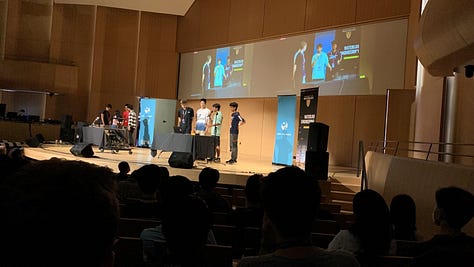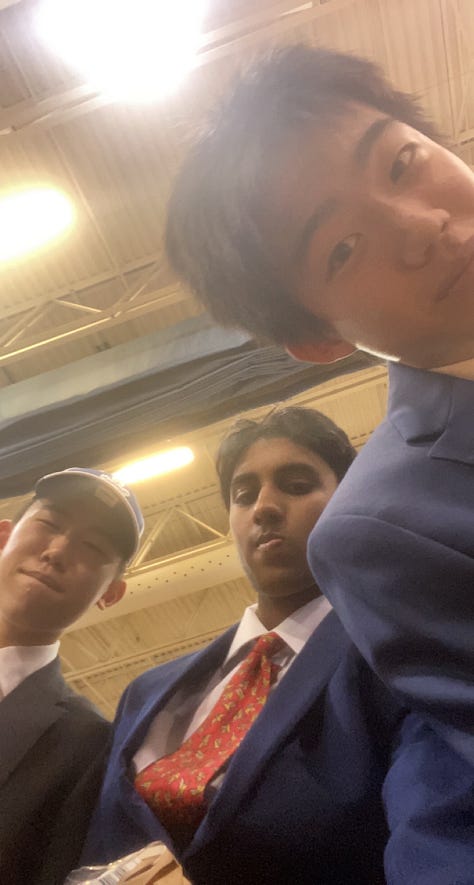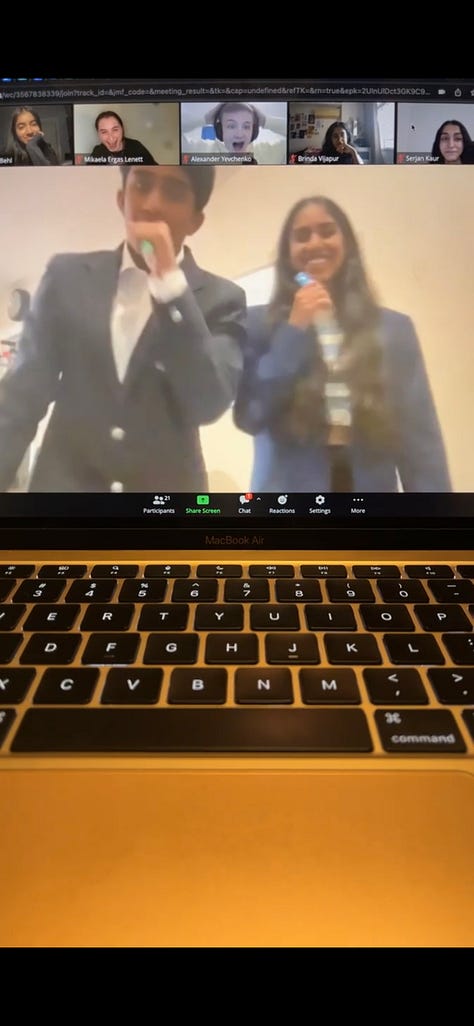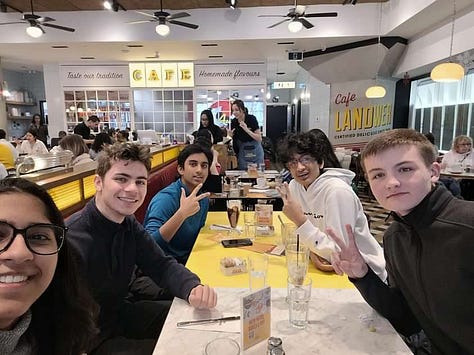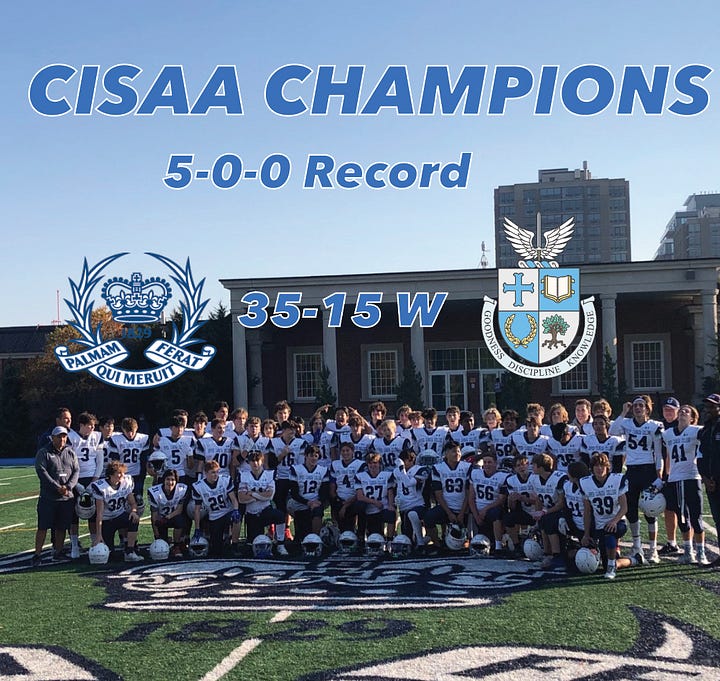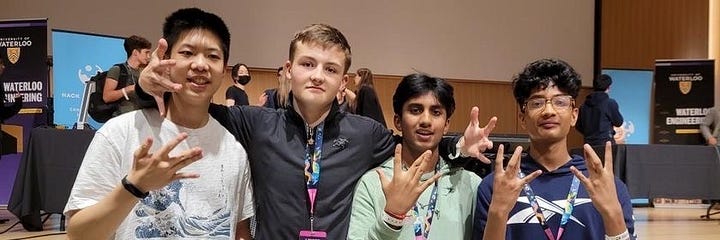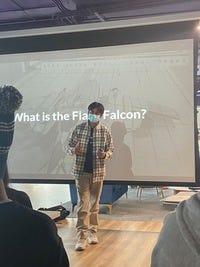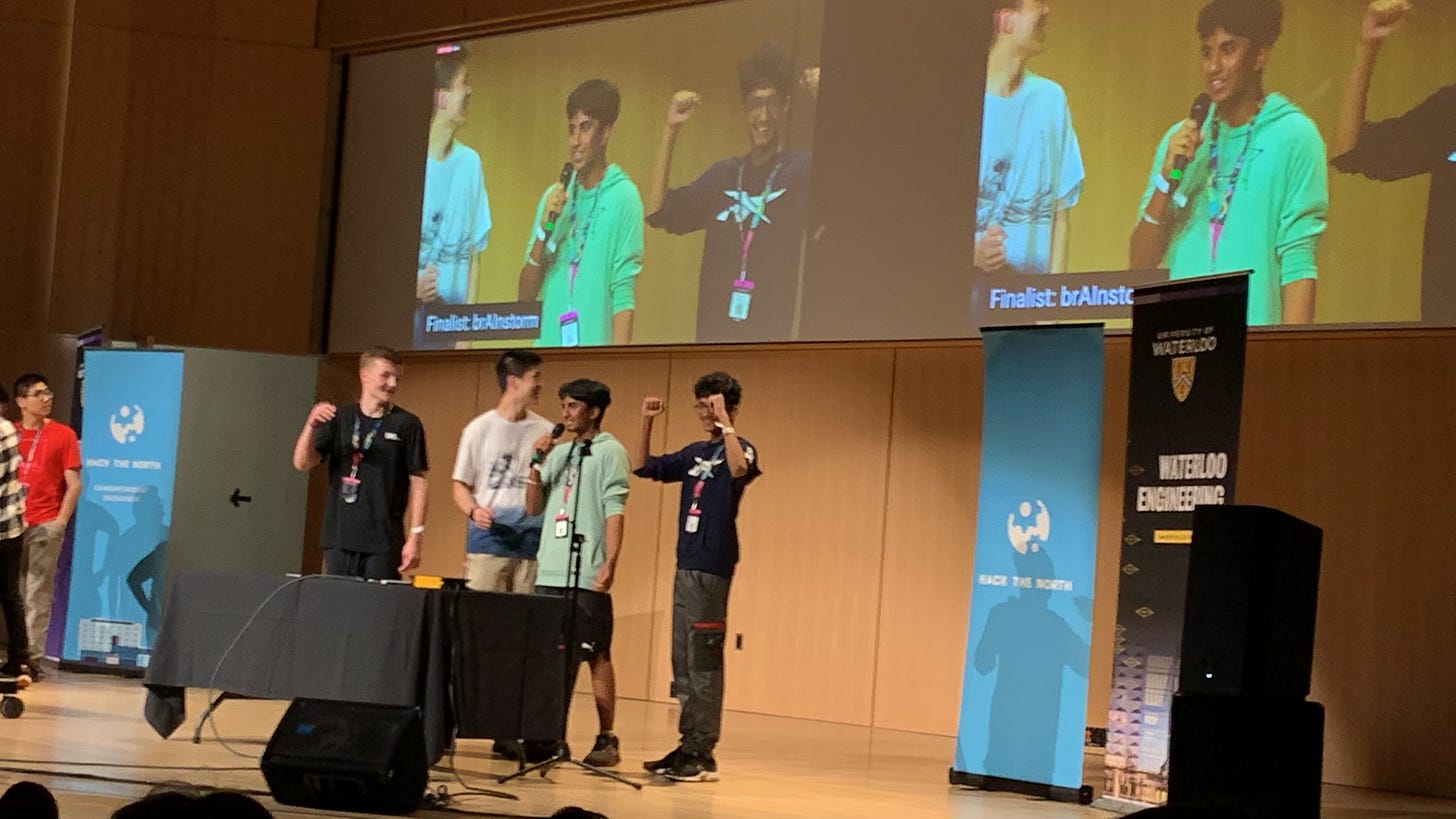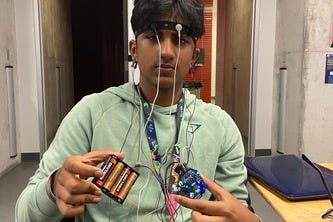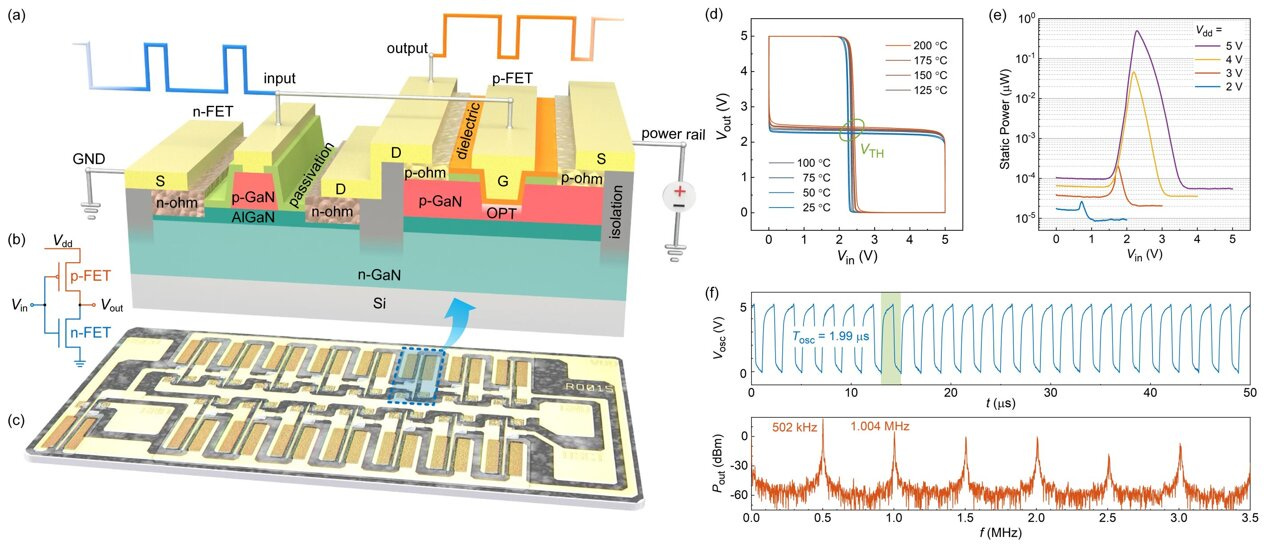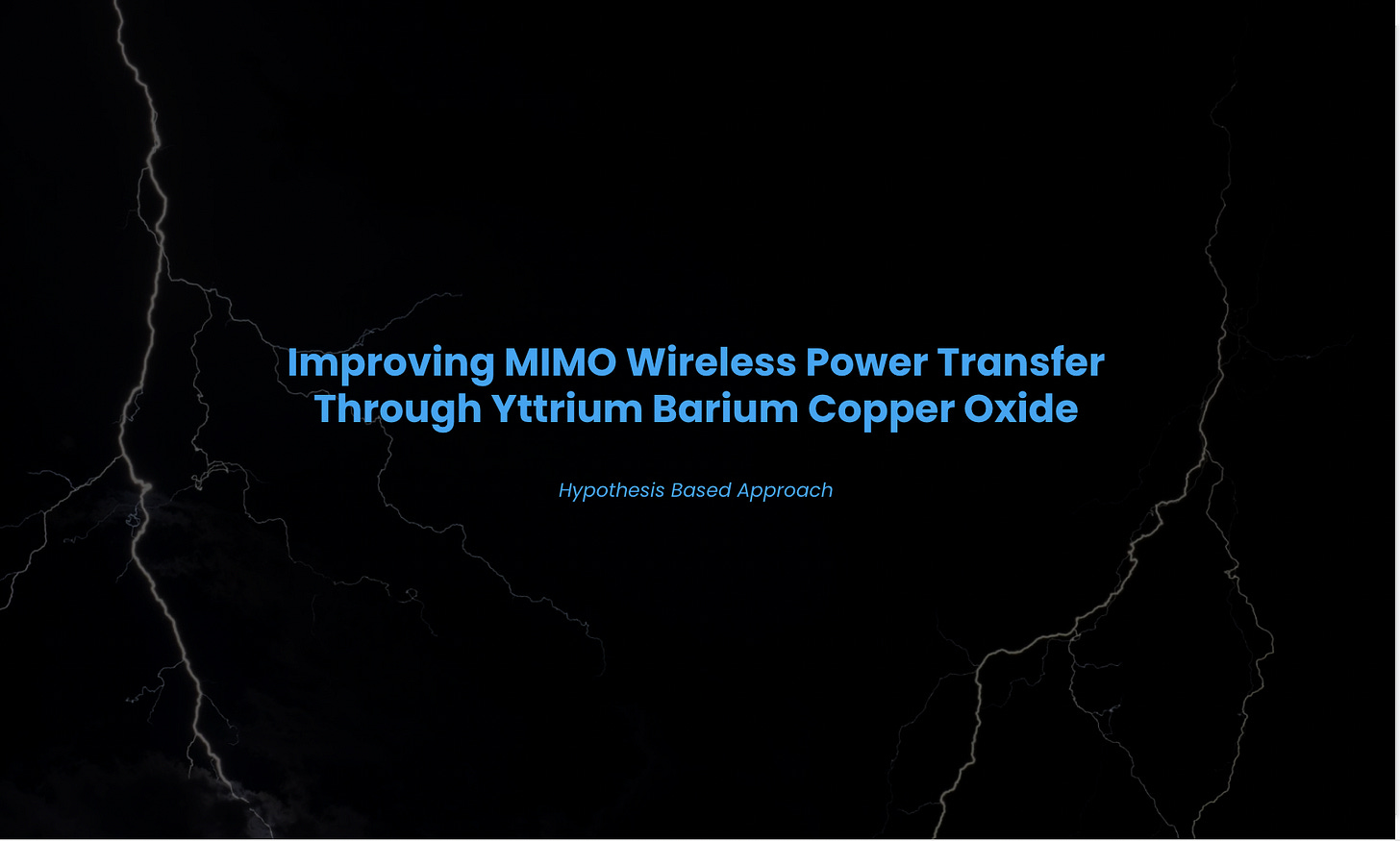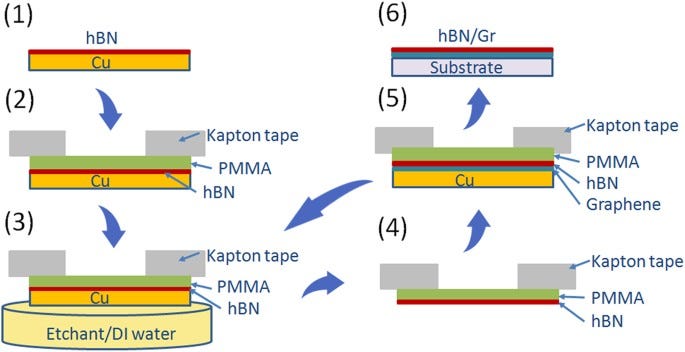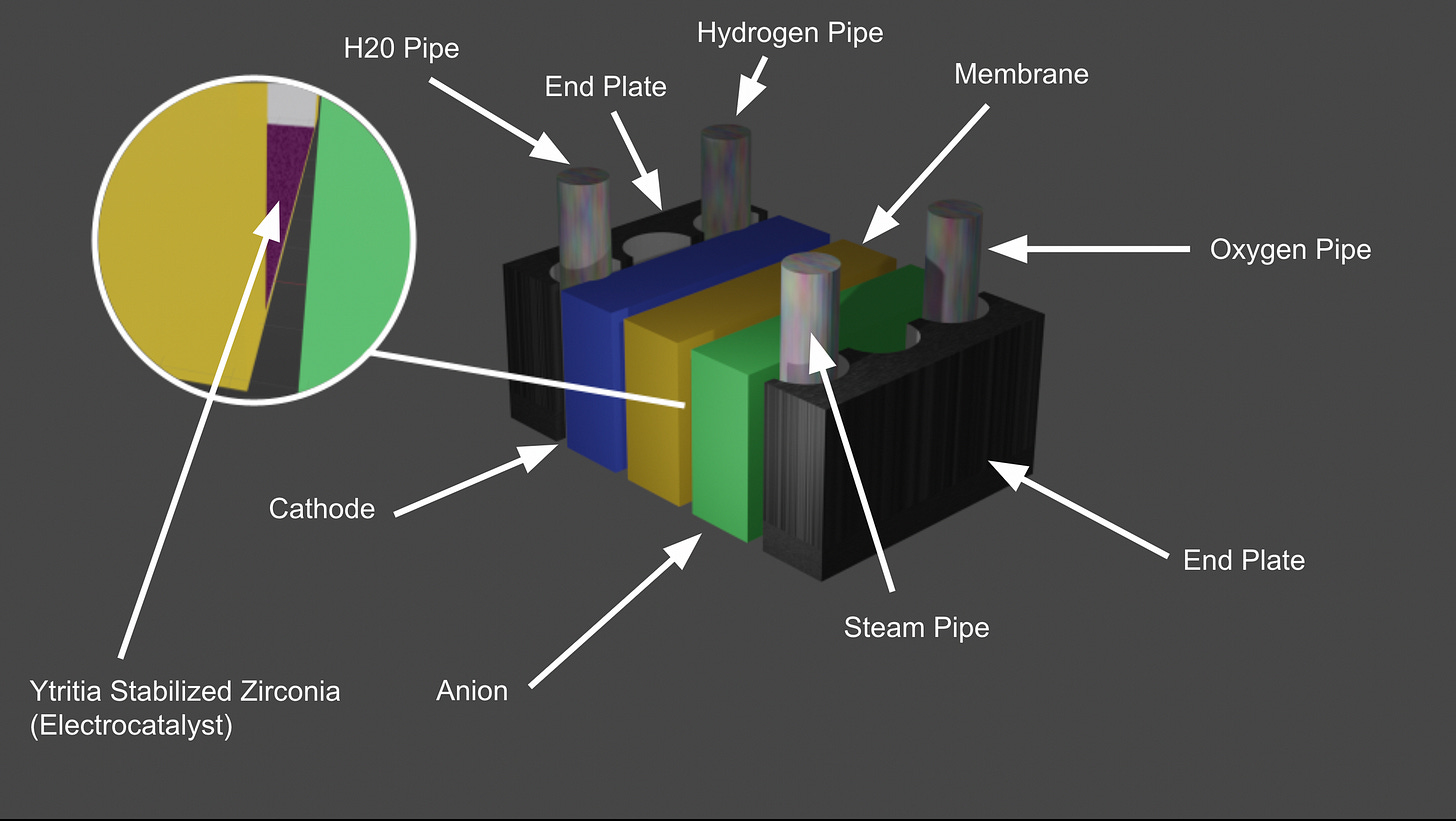Material Sciences/Clean Tech/Hack The North- End Of 2022 In A Nutshell
Hey there! To those of you who are new, my name is Unmol Sharma; I am 15 years old and currently based in Toronto, Canada. I have always been passionate about emerging technology and finding innovative solutions to problems. In the past few months, I have had the opportunity to participate in Canada's largest hackathon and write a research paper on gallium nitride power transistors. These experiences have been challenging but incredibly rewarding, and I am grateful for the support of my teachers, mentors, siblings, and friends, who have encouraged me to pursue my passions. In this newsletter, I will share with you more about my journey and the projects I have been working on.
My Journey Through The Last Four Months
My Journey Through The Last Four Months
Over the past four months, my journey has been one of diligent work and personal growth. I have spent the last few months crafting a schedule optimized for high-stress, high-success outcomes to always push myself as hard as possible, as this is something that I have recently realized is an absolute necessity for the human race to constantly improve. I have been fortunate enough to receive guidance and encouragement from teachers, mentors, siblings, and my friends, who have consistently pushed me to pursue my passions and take on challenging projects. This support has played a crucial role in helping me achieve some of my life's most rewarding and fulfilling experiences.
One lesson that I have learned in recent years is that too many people treat school as a limiting factor, seeing it as the sole venue for learning. However, I have come to understand that education extends far beyond the classroom, and it is important to take the time to explore and pursue our interests outside of school as well. Recognizing that these opportunities can come in many forms through academic pursuits, extracurricular activities, or personal projects, it is important to be proactive in seeking out and taking advantage of these opportunities, as they have the potential to not only bring joy and fulfillment in the present but also lead to valuable experiences and skills that will be beneficial in the future.
Highlights:
1. Winning Hack The North
In September of 2022, my team and I had the opportunity to participate in Hack the North, Canada's largest hackathon. We were the youngest team at the event, but that didn't stop us from coming out on top. Our project, called BrAInstorm, used Stable diffusion models based on brainwaves to create generative art that matched the artistic output to the user's emotions.
We were thrilled to win the hackathon, especially considering the level of competition we faced. The experience was intense and challenging, but we were able to use our skills and determination to create a unique and innovative project. We were also grateful to have the opportunity to present our project in front of a large audience, including sponsors, hackers, and professors at Waterloo.
2. Gallium Nitride Research Paper
I also had the opportunity to write a research paper on Gallium Nitride power transistors and their potential to overtake silicon as the dominant material in higher-temperature applications.
Gallium nitride is a semiconductor material with several advantages over silicon, including a higher breakdown voltage, higher electron mobility, and a wider bandgap. These characteristics make it particularly well-suited for use in power transistors, which are essential components in electronic devices that control the flow of electricity.
In my research paper, I explored the potential of gallium nitride to become the next universal semiconductor material and its potential to revolutionize the way we use technology. I analyzed the current state of gallium nitride technology and its potential for use in a wide range of applications, including power electronics, LED lighting, and even space exploration.
Writing and publishing this research paper was a challenging but rewarding experience. It was an opportunity for me to delve deep into a topic I was passionate about and share my findings with a wider audience.
3. Learning Material Sciences
In the past couple of months, I have been deeply immersed in the world of material sciences and climate tech. My interest in this field began a few years ago, but it was only recently that I realized that specializing in a particular area was the best way for me to make a true difference in addressing the challenges of climate change.
I have been eager to learn as much as possible about material sciences and have taken several steps to further my knowledge in the field. I recently finished reading "Stuff Matters" by Mark Miodownik, which provided a fascinating look at the properties and applications of materials in various industries. I also completed online auditing of the full Engineering Chemistry and Material Science course from UofT, which gave me a solid foundation in the core principles and concepts of the subject. I
In addition to my studies and coursework in material sciences, I have also had the opportunity to participate in several research projects in the field. These have included investigating the use of Ytritia stabilized zirconia as an electrocatalyst to replace platinum in green hydrogen production, examining the potential of a copper-aluminum substrate with an hBN buffer layer for advanced packaging in chiplets, exploring the use of Ytritium-barium-copper-oxide superconductors for magnetic confinement in Nuclear Fusion, and researching the potential of high-temperature superconductors for use in wireless electricity. I have also worked on projects involving the development of Gallium Nitride power transistors and Indium Gallium Nitride materials for solar photovoltaic energy conversion.
4. Tackling Moore’s law
Moore's Law is a prediction made by Gordon Moore, co-founder of Intel, in 1965 that the number of transistors on a computer chip would double approximately every two years, leading to exponential increases in computing power and decreases in cost. This prediction has largely held true for the past several decades, driving rapid progress in the field of computing and leading to the development of new technologies and innovations. However, as transistors approach the size of silicon's atomic size, it becomes increasingly difficult to shrink them to the same extent as in the past, leading to concerns that Moore's Law may soon reach its limits and slow the pace of technological progress.
One solution to this challenge is using chiplets, which are small, modular chips that can be combined to create a larger, more powerful system-on-a-chip. I have been working on a research project that involves the development of co-package optic chiplets using Copper-hBN-Aluminum substrates for advanced packaging. This project aims to address the limitations of traditional microchips by using chiplets, which offer several advantages such as increased computing power, decreased costs, improved efficiency and reliability, and the ability to be developed and produced independently of one another.
I have made significant progress on this research project and have been able to validate it through discussions with several engineers and Ph.D. students, and I will be publishing an article soon.
5. Green Hydrogen + Renewable Diesel project
I also worked on a project involving solid oxide electrolysis to create more stable and cheaper renewable diesel. As part of this project, I have been exploring the use of Ytritia-Stabilized Zirconia as a ceramic electrocatalyst to replace platinum in the production of green hydrogen. This is a promising approach as Ytritia-Stabilized Zirconia has several advantages over platinum, including higher stability and lower cost.
This project aims to develop a more efficient and cost-effective method for producing renewable diesel using green hydrogen. Renewable diesel is a cleaner and more sustainable alternative to traditional fossil fuels. Using Ytritia-Stabilized Zirconia as an electrocatalyst could help reduce its production cost and environmental impact.
What’s next for me:
Costa Rica Service Trip
I am excited to embark on a service trip to Costa Rica in the coming months. This trip will allow me to immerse myself in the local culture, meet impoverished families, and work on a service project that helps the local community.
Oxford lectures + Solid state physics by Charles Kittel
In the upcoming months, I will continue my path in embarking on this remarkable learning material sciences journey. I am currently reading Stuff Matters and have recently finished the Engineering Chemistry and Material Science course from UofT, and I am excited to start reading Solid State Physics by Kittel whilst doing the Condensed Matter Physics course from Oxford university.
CERN BL4S
Throughout the next couple of months, I will compete in the CERN BL4S completion, where we design and propose experiments to be carried out at world-class accelerators, such as CERN's Proton Synchrotron and DESY's electron accelerator. From searching for new particles to studying the properties of materials for photonic computing, I am excited to work on such interesting projects.
Pie Challenge
Most of my time in the next couple of months will also be spent on the Pie challenge. Pie = problems incentivized by economics; in this competition, I will be researching some of the world’s biggest problems and how such problems can be solved through the use of economics and emerging technology.
As I reflect on my journey so far, I am grateful for the opportunities I have had to learn, grow, and make a difference. Whether it be through academic pursuits, extracurricular activities, or personal projects, I have always been driven by my passions and the desire to make a positive impact. I am excited about the future and the opportunities it will bring. I am dedicated to continuing my growth and development and am eager to take on new challenges and make a difference in the world. Thank you for following my journey, and I look forward to sharing more with you in the future.
